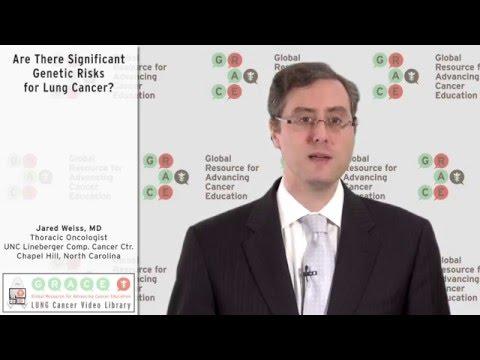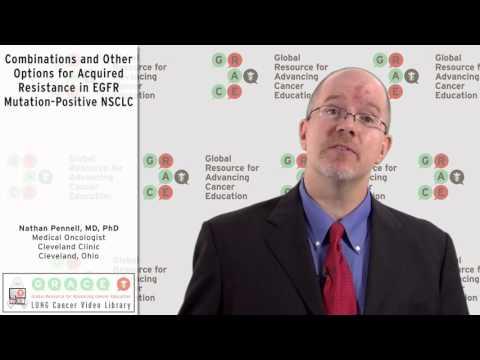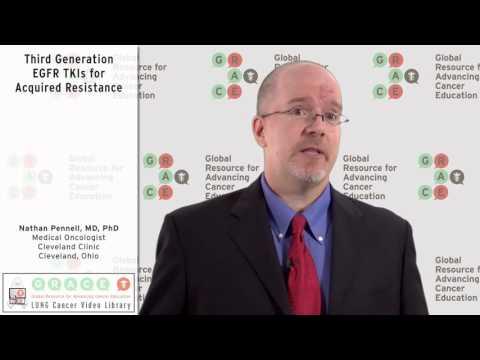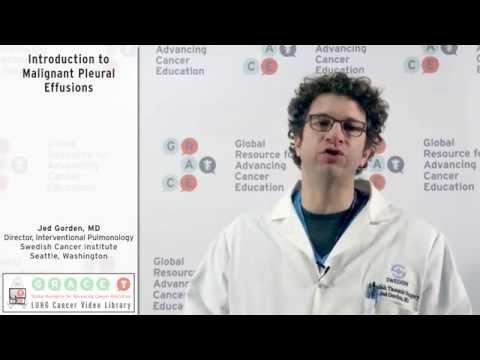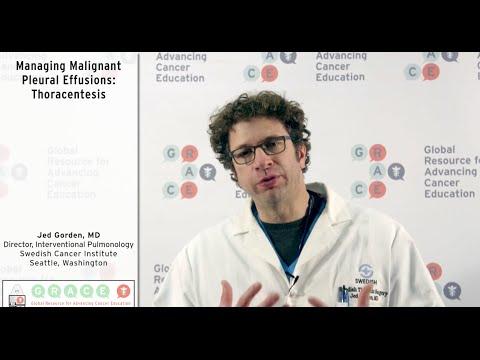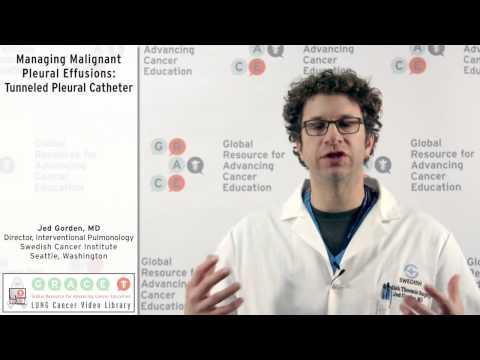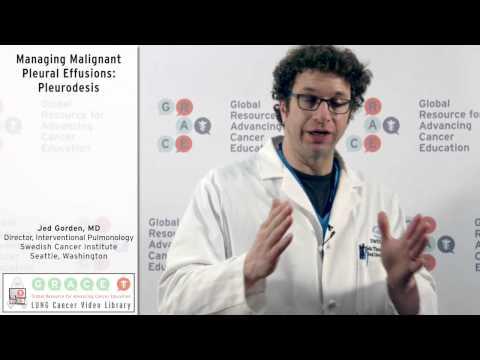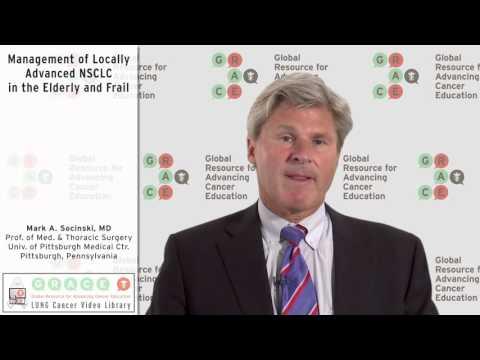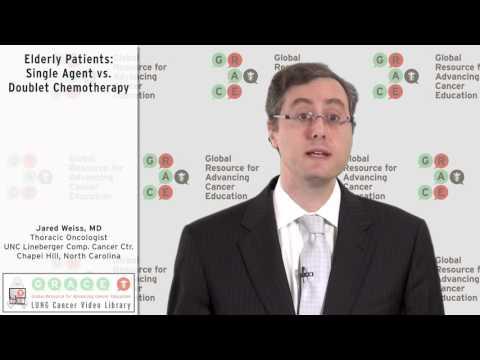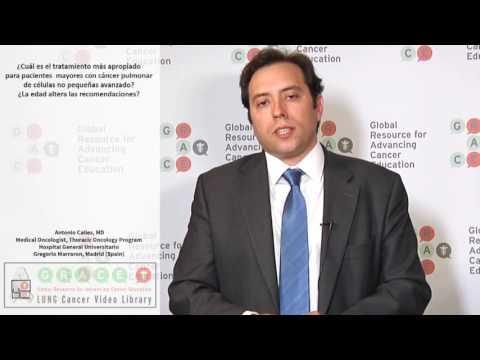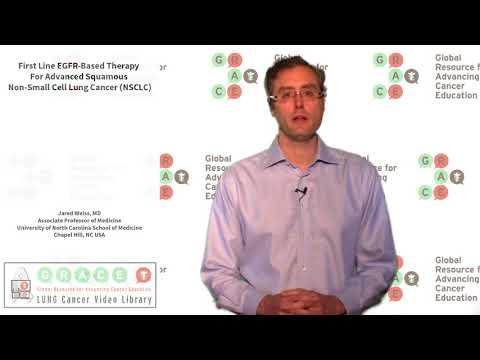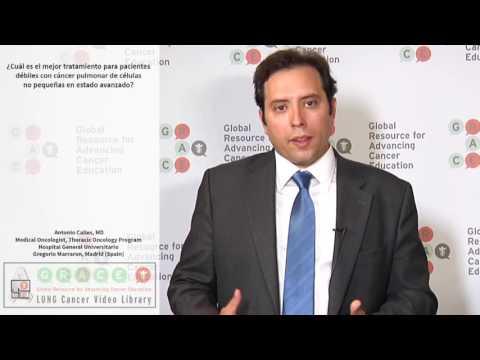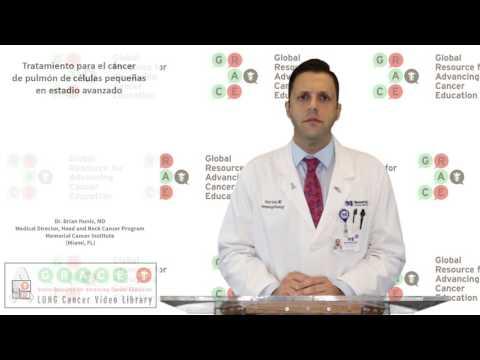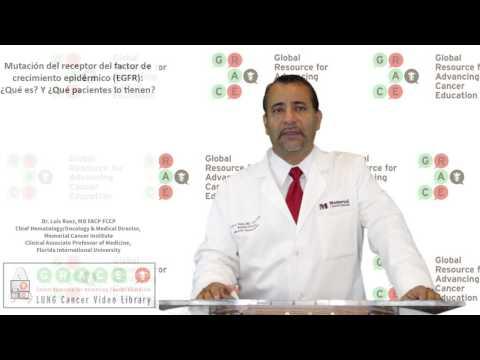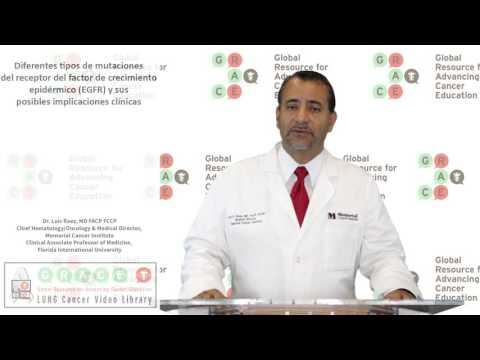Dr. Jared Weiss, UNC Lineberger Comprehensive Cancer Center, discusses the genetic risk (or lack thereof) for lung cancer.
Video Library
Search the Video Library
Video Language
Filter by Cancer Type:
Displaying Results 1 - 15 of 42
Dr. Nathan Pennell, Cleveland Clinic, describes other options for treatment of acquired resistance, including chemotherapy, ablation with SBRT and a combination of Gilotrif and Erbitux.
Please Note: New Treatments Have Emerged Since this Original Post
Dr. Nathan Pennell, Cleveland Clinic, discusses the concept of acquired resistance and new agents designed to address it, including Rociletinib and Merelitinib.
Interventional pulmonologist Dr. Jed Gorden reviews malignant pleural effusions (MPEs) are a common complication of lung cancer and some other cancers. Transcript So, I wanted to talk to you today about pleural effusions. Pleural effusions — it’s a complex term, and it’s a very common problem, so
Dr. Jed Gorden describes the details of how a thoracentesis is performed in order to clarify the diagnosis and treat symptoms of a malignant pleural effusion (MPE). Transcript With the pleural fluid that’s built up around the lung — this fluid that exist in between the linings, or as we discussed
A tunneled pleural catheter is an excellent way to manage the symptoms of a recurrent malignant pleural effusion. Dr. Jed Gorden describes how it is placed and how it works. Transcript So we’re talking today about pleural fluid — fluid that resides around the lung, in-between this space that we’re
Dr. Jed Gorden reviews the technique of pleurodesis to manage the complication of recurrent malignant pleural effusion (MPE). Transcript So we’re talking today about pleural fluid, the fluid that builds up around the lung — fluid that causes people be short of breath, often have symptoms like cough
Dr. Mark Socinski, University of Pittsburgh Medical Center, describes strategies for treatment of the elderly and frail patient with locally advanced NSCLC.
Dr. Jared Weiss, UNC Lineberger Comprehensive Cancer Center, discusses the use of single agent vs. doublet chemotherapy in elderly patients.
For our 5th video in the GRACE Spanish Lung Cancer Library, Antonio Calles, MD joined GRACE to discuss the most appropriate treatment for elderly patients with advanced NSCLC, and whether age alters the recommendations.
Dr. Jared Weiss, Vice President of GRACE and Associate Professor at UNC-Chapel Hill in Clinical Research, and the Thoracic Oncology Program at UNC Lineberger, discusses First Line EGFR-Based Therapy For Advanced Squamous Non-Small Cell Lung Cancer (NSCLC).
For our 7th video in the GRACE Spanish Lung Cancer Library, Antonio Calles, MD joined GRACE to discuss the best treatment for frail patients with advanced NSCLC.
For our 15th video in the GRACE Spanish Lung Cancer Library, Brian Hunis, MD joined GRACE to discuss treating later stage small cell lung cancer.
Dr. Luis Raez, MD FACP FCCP, Chief of Hem/Onc and Med. Dir. at Memorial Cancer Institute, and Clinical Associate Prof. of Medicine at FL International University joined GRACE to discuss EGFR mutation: what is it, and which patients have it?
Dr. Luis Raez, MD FACP FCCP, Chief of Hem/Onc and Med. Dir. at Memorial Cancer Institute, and Clinical Associate Prof. of Medicine at FL International University joined GRACE to discuss different types of EGFR mutations and their potential clinical implications.

